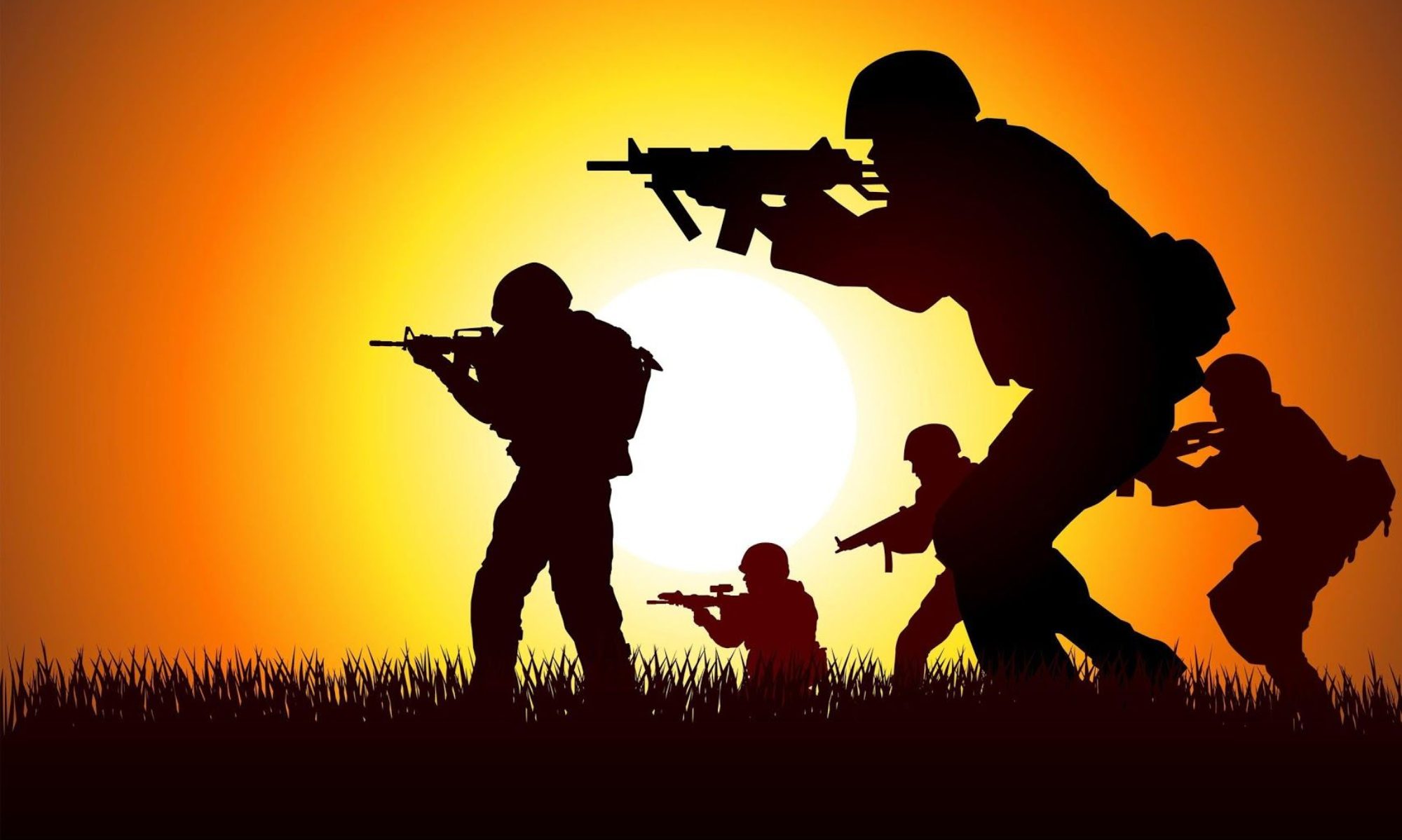Thanks to all of you who have been joining me here. We help bring change to lives. The response has been wonderful.
We Made it to 5,000! Never dreamed we would do that. Thank you so much for the support. It also excites us that you are supporting veterans. That is our theme here right now.
Help us make it to 6,000 by subscribing today if you haven’t already. As Of today we have 5,500. This shows you care for veterans. Just click on the icon right after the title of this post and click on FEEDBLITZ , and the posts will come straight to your inbox. ____________________________________________________________
Doug Bolton, the founder of the blog, Signs of Hope, which is at www.dailysignsofhope.com, has written a new book, “Signs of Hope for the Military: In and Out of the Trenches of Life.” It reaches out the many military and veterans who may be battling anxiety, fear, depression, addictions, rejections, and the many other usual suspects. There are 22 military connected suicides every day. That is almost one every hour. Doug wants to help stop those statistics.
______________________________________________________________
This is a new social network just for veterans. I joined it and made instant friendships with veterans who want to talk about what I want to talk about. Please check it out. You will be glad you did.
https://www.rallypoint.com/join/spc-douglas-bolton
_________________________________________________
Military News for today. Great stories.
This first story is very unusual in the it is about the famous General Patton’s grandson.
Ben Patton never was in the military like his grandfather General Patton, but he is doing whatever he can to support veterans through his documentaries that cover PTSD in veterans.
He was interviewed by Andrew Carroll about his contributions.
Your grandfather George Patton Jr. I one of the most famous generals in American history. You father was a major general who served with Vietnam. That’s a unique way to grow up.
My father used to say, “We’re not better or worse than anyone, we are just different.” We did have to act a certain way, behave appropriately, and have a service-oriented mind.
You didn’t join the military was there pressure for you to do so?
I think I felt pressure from history. I had a strong, but somewhat challenging relationship with my father. However, I always felt he wanted me to find my own path to lead an authentic life.
What inspired you to become a documentary filmmaker and teacher?
I got interested in film. I wanted to find a way, beyond just going to veteran’s events and representing my family, to apply those talents and skills to the service of veterans and military families.
That led you to do the work of helping those veterans captured on film?
Yes. Initially I was focused on combat veterans. They had too many things that the just couldn’t articulate in a normal conversation. We found that film could be a wonderful conduit for a veteran to express something.
Your grandfather won lots of glory but was criticized for slapping two soldier fighting battle fatigued.
I’m not an apologist for my grandfather. I would say that generation of the military just didn’t understand the phenomenon of PTSD.
What makes your work different from other PTSD programs?
There are wonderful writing programs and theater programs , but there something about them being able to create narrative in this way. They can observe themselves in a video but also participate in them. From this they can take control of their lives.
___________________________________________________________
The Army’s New Camouflage Will Hide Soldiers And Tanks In Plain Sight Wherever They Are
The U.S. Army is moving forward on next-generation concealment technology to ensure that American soldiers can hide in plain sight.
Fibrotex has built an Ultra-Light Camouflage Netting System that can be used to conceal soldier’s positions, vehicles, tanks, and aircraft. The new “camouflage system will mask soldiers, vehicles, and installations from state-of-the-art electro-optical sensors and radars,” the company said Thursday in a press release sent to Business Insider.
Fibrotex has been awarded a contract to supply this advanced camouflage to conceal troops from night vision, thermal imaging, radar and more.
Soldiers, vehicles, and other relevant systems can just about disappear in snowy, desert, urban, and woodland environments, according to the camouflage maker.
The new program aims to replace outdated camouflage that protect soldiers in the visible spectrum but not against more advanced, high-end sensors. ULCANS “provides more persistent [infrared], thermal & counter-radar performance,” Fibrotex explained.
The Army has awarded Fibrotex a 10-year indefinite delivery/indefinite quantity contract valued at $480 million. Full-scale production will begin next year at a manufacturing facility in McCreary County, Kentucky, where the company expects to create and secure hundreds of new jobs in the coming years.
“Today, more than ever, military forces and opposition groups are using night vision sensors and thermal devices against our troops,” Eyal Malleron, the CEO of Fibrotex USA, said in a statement.
“But, by using Fibrotex’s camouflage, concealment and deception solutions, we make them undetectable again, allowing them to continue keeping us safe.”
The result came from roughly two years of testing at the Army’s Natick Soldier Systems Center, where new technology was tested against the Army’s most advanced sensors.
Fibrotex noted that the netting is reversible, creating the possibility for two distinctly different prints for varied environments. And while outsiders can’t see through the netting, those on the inside have an excellent view of their surroundings.
___________________________________________________________________
A few personal thoughts for you. Are you having trouble with your daily routine? Are your nights full of restless, sleepless hours?
You are not alone!! Many veterans battle these problems. This path will lead to a dead end my friends. Get help.! Seek support!!
You can always make a comment here and we will help you in any way we can. You can also call the support line at:
(877-247-4645)
Remember
You are never alone.
You are never forgotten
You are never unloved.
And above all….Never, ever, give up!
